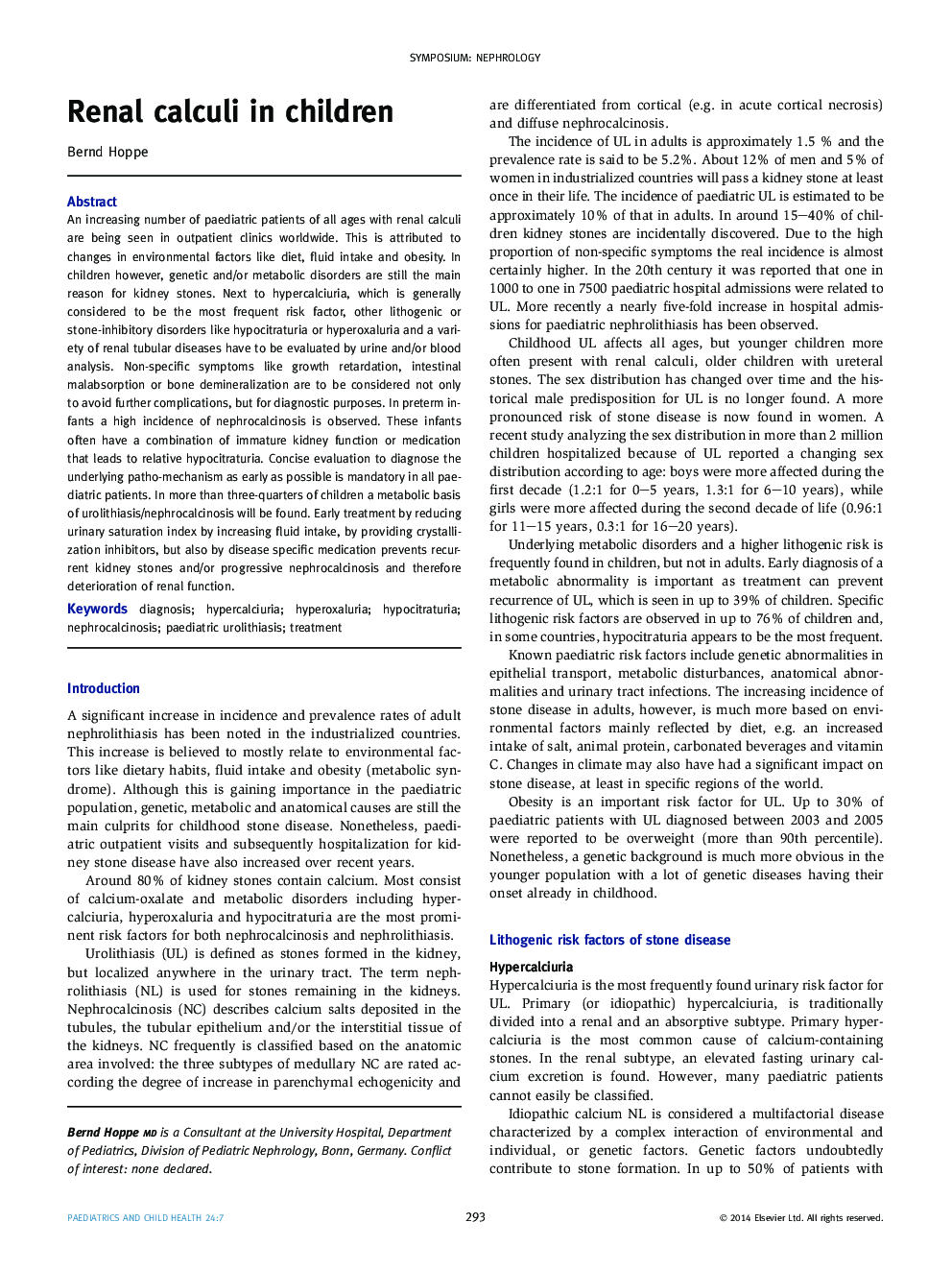| Article ID | Journal | Published Year | Pages | File Type |
|---|---|---|---|---|
| 4172028 | Paediatrics and Child Health | 2014 | 10 Pages |
An increasing number of paediatric patients of all ages with renal calculi are being seen in outpatient clinics worldwide. This is attributed to changes in environmental factors like diet, fluid intake and obesity. In children however, genetic and/or metabolic disorders are still the main reason for kidney stones. Next to hypercalciuria, which is generally considered to be the most frequent risk factor, other lithogenic or stone-inhibitory disorders like hypocitraturia or hyperoxaluria and a variety of renal tubular diseases have to be evaluated by urine and/or blood analysis. Non-specific symptoms like growth retardation, intestinal malabsorption or bone demineralization are to be considered not only to avoid further complications, but for diagnostic purposes. In preterm infants a high incidence of nephrocalcinosis is observed. These infants often have a combination of immature kidney function or medication that leads to relative hypocitraturia. Concise evaluation to diagnose the underlying patho-mechanism as early as possible is mandatory in all paediatric patients. In more than three-quarters of children a metabolic basis of urolithiasis/nephrocalcinosis will be found. Early treatment by reducing urinary saturation index by increasing fluid intake, by providing crystallization inhibitors, but also by disease specific medication prevents recurrent kidney stones and/or progressive nephrocalcinosis and therefore deterioration of renal function.
